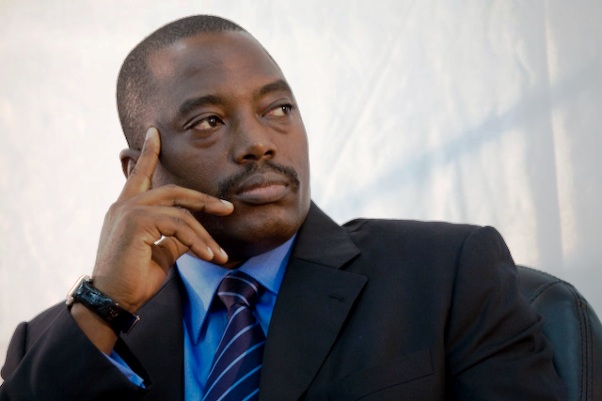Carolyn Mills
In a continent that is no stranger to violence, civil wars and post-colonial conflict, the Democratic Republic of Congo, or ‘DRC’, is currently in a state of fragility and uncertainty. The quest for democracy on the continent of Africa is one that has been hard fought for, from freedom from colonialism to fighting rampant corruption and the tendency toward instability. Supporting and upholding democracy should be a priority for the international community and for the leaders of these nations.
Initially a Belgian colony, the DRC gained its independence in 1960 (called Zaire from 1971-1997) and was marred with issues with instability as many infant African Nations. [1] In 1965 Col. Mobutu came into power as the image of the young country’s savior yet that image turned darkly violent.[2] His reign in the country most notably came to an abrupt when joint troops from African Countries such as: Angola, Chad, Namibia, Sudan and Zimbabwe sent troops to topple 32 year stronghold over the country. [3] Mobutu’s reign was known as a kleptocracy, where he was notorious for pilfering money in the billions and for widespread nepotism and corruption of the country’s resources. [4]

Protesters Against Kabila
The DRC again finds itself in the middle of another power struggle and at the forefront of international headlines. As of September 28, 2016, the United States placed sanctions on two top leaders in the country.[5] The effort was seen by many as a clear message for DRC’s current President, Joseph Kabila, to respect the constitution. [6] The two leaders, Major General Gabriel Amisi Kumba and General John Numbi have both been accused by the US government as being leaders of violent repression against opposition demonstrations. [7]
The country has been wrought with violence the past few months, as its current President for the past 15 years (and counting) Kabila, is exclaiming that the country is too broke to hold free and open elections in December. [8] Leaders of the opposition are not impressed. As of last week, 32 people were killed during protests against the country’s inflammatory leader and apparent ‘foot dragging’ as some would call it[9]. During this demonstration over 368 protesters were arrested. [10] In light of the current unrest the Department of State has ordered that all US personnel leave the country. [11]
For the past 20 year DRC has been able to maintain an electoral democracy, albeit fragile. [12] President Kabila has failed to announce when and where elections will take place or to make mention of a successor. The Constitutional Court granted that Kabila could be able to stay in office through the elections —something that disturbed the opposition. [13] Kabila’s supporters have been quoted as telling the press that many Congolese are, in fact, supportive of a third term for the current President opposition is often quashed.[14]
It is no wonder that Kabila wants to continue to secure his hold on the country—he is certainly attempting to maintain his dictatorship, as he initially took office just 10 days after the assassination of his father, Laurent-Desire Kabila, by one of his bodyguards. [15] At the time, the official age to become President was 35, but Kabila was only 29 years old when he assumed power. So, as any good dictator does, he changed the constitution — lowering the official age to become president from 35 to 30. [16] Much like his predecessors, he is known for his vast nepotism, and corruption and he is vastly unpopular with the Congolese majority.

Kabila Supporters
According to Transparency International, a non-governmental agency that monitors corruption abroad, the DRC maintains an illustrious reputation as being one of the most corrupt countries in Africa. [17] Further, when respondents were asked by Transparency International if any of them had given a bribe within the past 12 months 54% responded to paying a bride to the judiciary, 40% to education services, and most alarmingly 78% to the police.[18] Further, when respondents were asked about the effectiveness of their government 46% responded (a nearly overwhelming majority) they felt they were ineffective.
This survey only lends itself to a clearer picture of how many Congolese feel about their government and its leaders. Kabila’s hardline stance toward the opposition coupled with his 15 year reign give few confidence about their country’s leadership. The crackdown on pro-democracy demonstrations has drawn the attention of not only Human Rights Watch, but of many different foreign governments—some of which say that it is simply a “wait and see game” to learn the fate of the country and its democracy. [19] Some have even argued that Africa’s conception of democracy cannot be comported with that of the West, and the continent’s implementation of it is wholly and entirely different.[20] For example, author William Gumede asserts that, “…the African style democratic leader becomes like a traditional chief. Winning means and state resources are the spoils, part of which you may use for yourself.” This hypothesis could clearly account for much of the corruption seen in many of these nations including the DRC. However realized, however conceptualized, there should be freedoms guaranteed without the fear of retaliation and violence.

President Kabila looks on during signature ceremonies.
We have to assess whether or not we are going to hold the DRC to western standards of democracy or if we are going to sit back and allow autocratic dictators to continue with their corrupt ways.
[1] https://www.cia.gov/library/publications/the-world-factbook/geos/cg.html
[2] Id.
[3] Id.
[4] http://biography.jrank.org/pages/2974/Seko-Mobutu-Sese.html
[5] https://www.theguardian.com/world/2016/sep/28/us-sanctions-drc-officials-democratic-republic-congo
[6] http://time.com/4514140/democratic-republic-congo-us-families/
[7] http://www.africanews.com/2016/09/30/us-issues-travel-alert-for-restive-drc-kinshasa-fires-back-over-sanctions/
[8] Id.
[9] Id.
[10] http://aa.com.tr/en/africa/drc-opposition-seeks-justice-over-deadly-protests/654466
[11] http://time.com/4514140/democratic-republic-congo-us-families/
[12] http://africanarguments.org/2016/07/21/dr-congo-can-anyone-stop-joseph-kabila/
[13] Id.
[14] Id.
[15] http://www.cbsnews.com/news/joseph-kabila-takes-power-in-congo/
[16] http://news.bbc.co.uk/2/hi/africa/4840388.stm
[17] http://www.transparency.org/gcb2013/country/?country=democratic_republic_of_the_congo
[18] Id.
[19] https://www.hrw.org/news/2016/09/18/democratic-republic-congo-precipice
[20] http://www.publicseminar.org/2015/02/african-style-democracy/#.V_KIHk-FOJA

